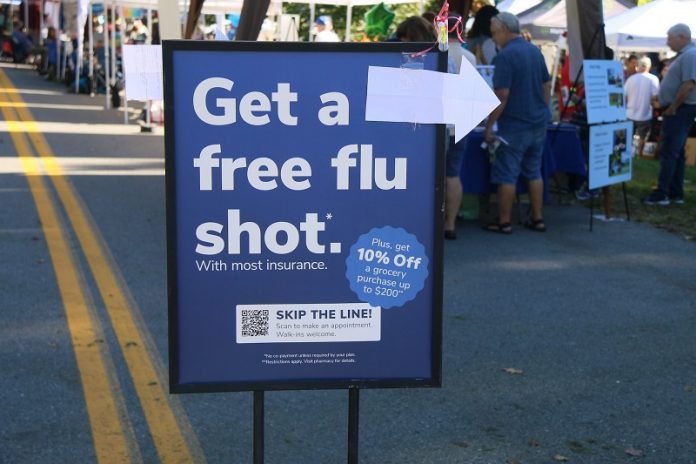
In a study from Örebro University, scientists found that flu vaccination reduces the risk of all-cause death, heart attack, or stent thrombosis at 12 months in hospitalized patients with a heart attack or high-risk coronary disease.
During influenza epidemics, more people die from cardiovascular causes than during non-epidemic periods.
Previous studies have suggested a protective effect of influenza vaccination on heart disease events.
Flu vaccination is recommended for patients with heart disease but is not part of standard hospital care following a heart attack.
In the study, the team examined whether flu shot improves outcomes following a heart attack in high-risk patients with coronary artery disease.
The trial was conducted at 30 hospitals in eight countries (Sweden, Denmark, Norway, Latvia, the UK, Czech Republic, Bangladesh, and Australia) over four influenza seasons.
Participants were assigned in a 1:1 ratio to receive either the influenza vaccine or placebo within 72 hours of an invasive coronary procedure or hospitalization.
The team found heart disease events occurred in 67 patients (5.3%) in the vaccine group and 91 (7.2%) in the placebo group.
In addition, death from any cause occurred in 37 patients (2.9%) in the vaccine group and 61 (4.9%) in the placebo group. Rates of heart death were 2.7% and 4.5%, respectively.
There was no difference between groups in the rate of heart attacks, which occurred in 25 (2.0%) and 29 (2.4%) patients in the vaccine and placebo groups, respectively.
Serious adverse events were rare and of similar type and incidence in both groups.
Injection site reactions like pain, redness, swelling, and hardening were reported significantly more often in patients assigned a flu shot.
These findings suggest that in patients with a heart attack or high-risk coronary disease, early influenza vaccination resulted in a lower risk of death, heart attack, or stent thrombosis at 12 months.
The team suggests that influenza vaccination should be considered as part of in-hospital treatment after a heart attack.
If you care about heart failure, please read studies about aspirin linked to a higher risk of heart failure, and this diabetes drug can reduce death in heart failure.
For more information about heart health, please see recent studies about the best blood sugar levels to prevent strokes and heart attacks, and results showing this antioxidant drug may protect against stroke and heart attack.
The study was conducted by Professor Ole Fröbert et al and presented at ESC Congress meeting.
Copyright © 2022 Knowridge Science Report. All rights reserved.



